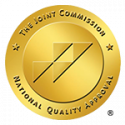Recovering from addiction is not only about quitting a substance; it’s also about rebuilding your life, including your mental health. Do you feel overwhelmed, anxious, or depressed during your recovery process? If so, you’re not alone. Many people struggle with maintaining their mental well-being while navigating the journey of addiction recovery. Developing strategies to manage your stress, anxiety, and other mental health challenges is essential during your recovery journey. This article explores practical ways to support your mental and emotional health in addiction recovery. These tips can help you build a solid foundation for lasting recovery.
The Mental Health Connection
Research has shown a significant correlation between mental illness and substance use disorders. Substance use is a form of self-medication for mental health issues. Studies indicate that approximately 50% of individuals who experience addiction also have co-occurring mental health disorders and vice versa. Therefore, addressing either issue can aid in overcoming the other. When abstaining from drugs or alcohol, individuals may experience increased anxiety, depression, or other mental health symptoms. However, with perseverance and effective coping strategies, one can emerge from the experience with increased mental fortitude and well-being. Here are some ways to support your mental health during recovery and beyond.
1. Engage in Healthy Activities
One of the most important things you can do to support your mental health in addiction recovery is to engage in healthy activities. Exercise, meditation, and other activities that focus on your physical and psychological well-being are great ways to keep yourself busy, reduce stress, and improve your overall mood.
Getting active can make a massive difference in supporting your mental health. It may not be a cure-all, but it’s a great distraction that releases endorphins and brightens your perspective. Plus, working out clears your head and helps you tackle obstacles. Staying active can help you refocus while simultaneously helping your physical health! Find something that appeals to you—whether it’s yoga, running, or simply walking through nature —and make time for it each week.
2. Keep a Journal
Although it may sound simple, journaling can be therapeutic. It allows you to express thoughts that may not be shared elsewhere and helps to make sense of them. Writing ideas down makes them easier to understand than when they are just in one’s head. Journaling can also be an accessible step in processing your emotions, which may have been neglected or covered up by substance use. Unearthing those feelings may not be pleasant, but it allows one to understand what is being felt, why it is being felt, and how to handle it. This approach is empowering and healthier than avoiding emotions to deal with later.
3. Build a Strong Support System
Another way to protect your mental health is to build a strong support system of people who understand and care about you. Connecting with friends and family members willing to listen, offer advice, and provide emotional support can be incredibly beneficial during recovery. If you struggle to find this support, consider joining a recovery program or attending therapy sessions.
Staying connected with your recovery program is also a great way to stay mentally healthy. Being part of a recovery group can help you stay accountable, keep your spirits up, and remind you why you’re staying sober in the first place. Many recovery groups also offer activities and services designed to help individuals cope with stress, anxiety, and other challenges accompanying sobriety.
4. Practice Self Care
It’s also essential to take care of yourself emotionally by practicing self-care. Allow yourself to take breaks when needed, and don’t be afraid to ask for help if you’re feeling overwhelmed or anxious. Also, make sure to practice self-compassion. Addiction is a difficult journey, and recovery can be a long process. Allow yourself to take it one day at a time, forgive yourself for your mistakes, and celebrate your successes. Self-care helps to reduce stress, promote well-being, and help create healthy coping skills that will help you better manage your mental health.
5. Take Advantage of Ongoing Professional Help
Recovery from substance use disorder doesn’t end after completing drug and alcohol treatment. Rehab builds a foundation of tools to help patients recover physically, but you can unlock the full potential of your recovery journey with the guidance of a mental health expert. Don’t let hidden mental health conditions hold you back – uncover and conquer them with the power of therapy.
Therapy allows individuals to explore their feelings related to their addiction without judgment. A qualified therapist will help identify underlying issues that may have contributed to substance use disorder and provide coping strategies for avoiding relapse. Working with a mental health expert can also help you develop positive habits and behaviors needed to establish a healthy lifestyle after rehab.
Take Control With Sobriety Solutions Today
Focusing on your mental health will make you more likely to stay sober and maintain a positive outlook on life. Remember to take care of yourself and practice self-care as often as possible. With the right support system and healthy habits, you’ll be well on your way to a successful recovery. If you or a loved one are experiencing substance abuse, reach out now to discuss treatment options and find the best program for you. Dial (833) 349-2009–we’ll await your call.









